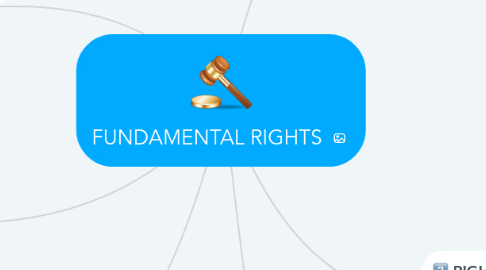
1. RIGHT AGAINST EXPLOITATION
1.1. Article23: Ban on human trafficking
1.1.1. Bonded labour, selling or buying of human beings for the purpose of illegal trade are criminal offence
1.2. Article 24: Child labour is prohibited
1.2.1. Any child up-to the age of 14 years cannot be forced to work for or against his/her will especially at hazardous places
2. RIGHT TO FREEDOM OF RELIGION
2.1. Article 25: Freedom to practice, profess and propagate
2.1.1. Govt. can ban practices if they are immoral or against the health of individuals eg: Sati
2.2. Article 26; Freedom to manage religious affairs
2.2.1. Govt. can interfere if it practices any rituals that violates human rights
2.3. Article 27: Freedom from taxation for promoting particular religion
2.4. Article 28: Religious instructions
2.4.1. An educational institution that is wholly funded by the Government should not have religious instruction.
3. CULTURAL AND EDUCATIONAL RIGHTS (for minorities)
3.1. Article 29: Right to practice, profess and promote language, culture or script
3.2. Article 30: Set up educational institution
3.2.1. have the right to administer it have the right to receive government aid and grants without discrimination
4. RIGHT TO EQUALITY
4.1. Article 14: Equality before law
4.1.1. All are equal before law
4.2. Article 15: Social equality
4.2.1. No discrimination by govt and equal access to public places irrespective of caste, religion or gender etc.
4.3. Article 16: Equality of opportunity in terms of govt. employment
4.3.1. Reservation in certain cases for SC, ST and OBC
4.4. Article 17: Prohibition of Untouchability
4.4.1. protection of interest of low caste people
4.5. Article 18: Abolition of discriminatory title
4.5.1. Only military or academic titles conferred
5. RIGHT TO FREEDOM
5.1. Article 19
5.1.1. A. Freedom of speech and expression
5.1.1.1. also includes freedom of press
5.1.2. B. Freedom to assemble peacefully without arms
5.1.2.1. Can be allowed if it is a religious ritual eg: Sikhs carry dagger
5.1.3. C. Freedom to form association or unions
5.1.4. D. Freedom of movement
5.1.4.1. Can be stopped from moving in case of epidemics
5.1.5. E. Freedom of Residence
5.1.5.1. Certain areas not accessible like tribal land
5.1.6. F. Freedom of occupation
5.1.6.1. Carry on all legal job or occupation
5.2. Article 20
5.2.1. Right to conviction of offences
5.2.1.1. Ex post facto law: punishment according to law prevailing at the time of arrest
5.2.1.2. Double jeopardy: Cannot be convicted for same offence twice
5.2.1.3. Nobody should be forced to be a witness against himself.
5.3. Article 21
5.3.1. Right to life and personal liberty
5.4. Article 21 A
5.4.1. Right to education
5.4.1.1. The State must provide free and compulsory education to children from 6 -14 years.
5.5. Article 22
5.5.1. Right against illegal detention
5.5.1.1. Nobody shall be arrested and detained in custody without being informed of the charge against him.
5.5.1.2. A person who is arrested has the right to consult a lawyer of his choice.
5.5.1.3. He has to be produced before a magistrate within 24 hours of arrest.
6. RIGHT TO CONSTITUTIONAL REMEDIES
6.1. Article 32: Seek justice from the court of law in matters of violation of human rights
6.1.1. Soul of fundamental rights - B.R. Ambedkar
6.1.2. Supreme or High court can issue Writ (written order)
6.1.2.1. 1. Haebes Corpus - against unlawful detention of a person
6.1.2.2. 2. Mandamus - Order to lower court or authority to perform certain task
6.1.2.3. 3. Prohibition - Stop proceedings in lower court if beyond its limit
6.1.2.4. 4. Certiorari - Cancel the order of lower court
